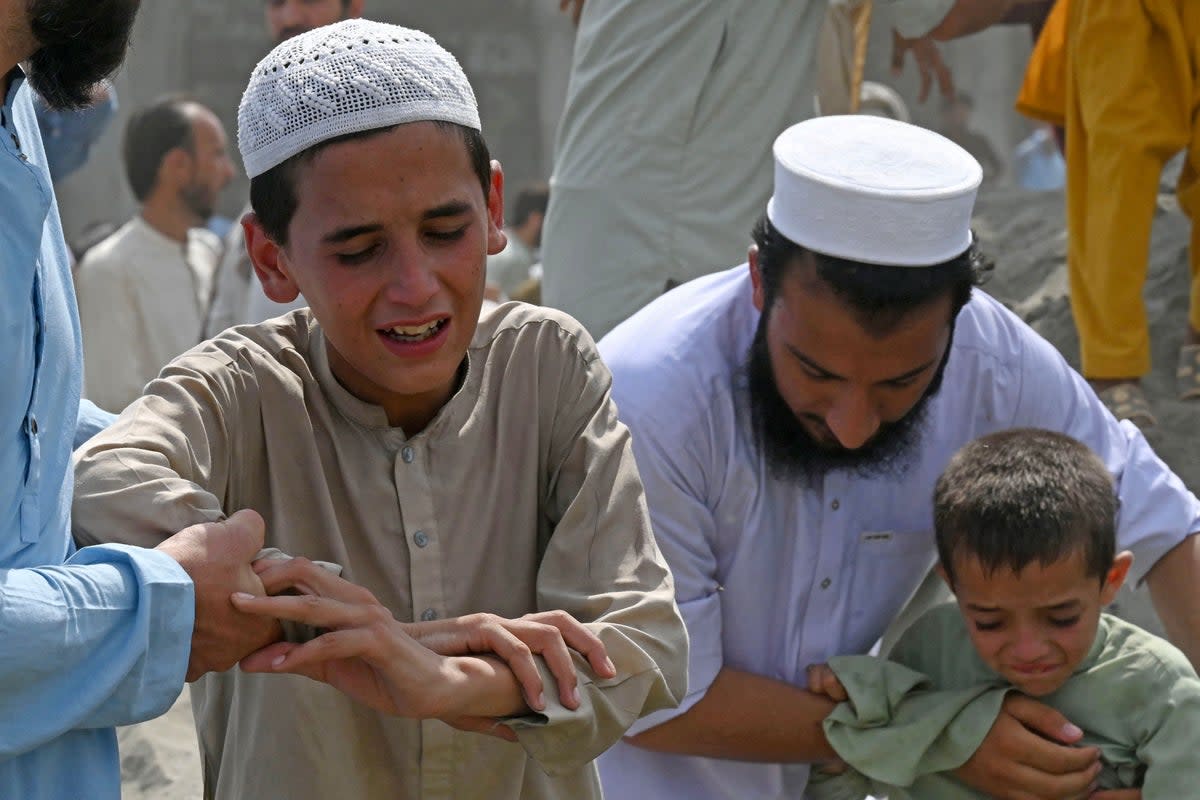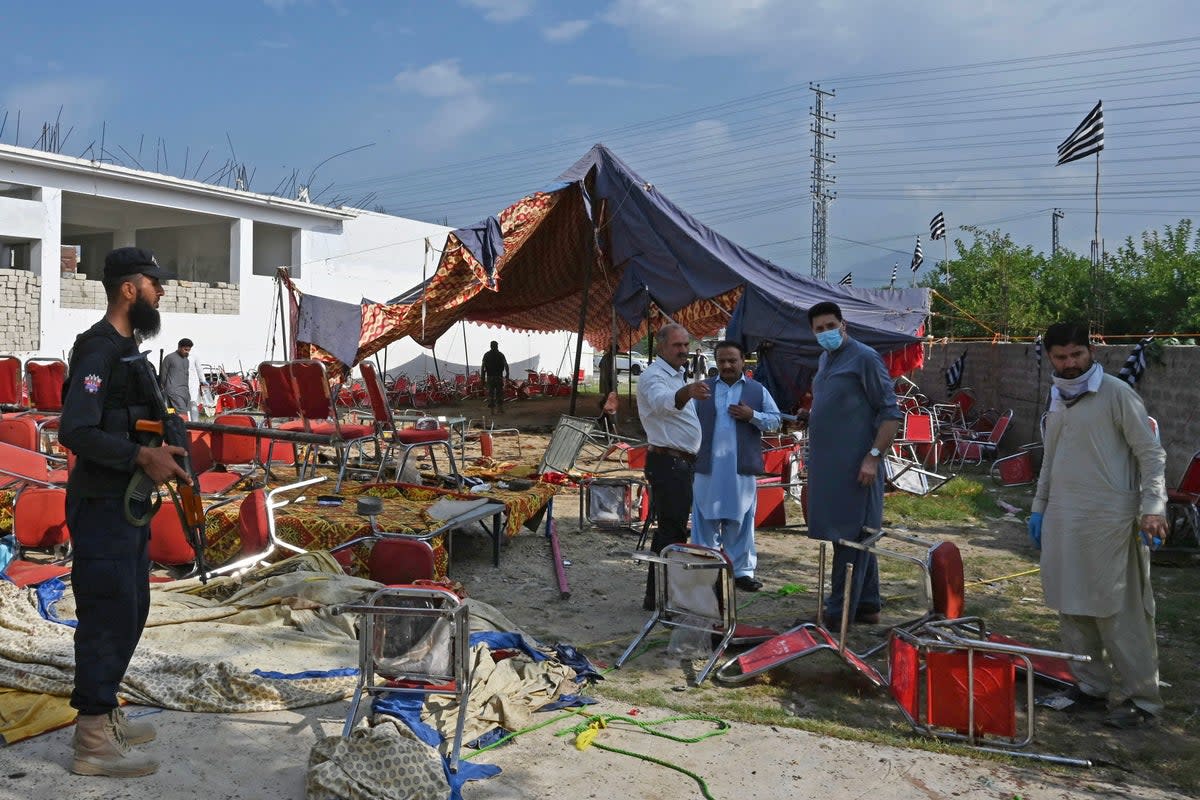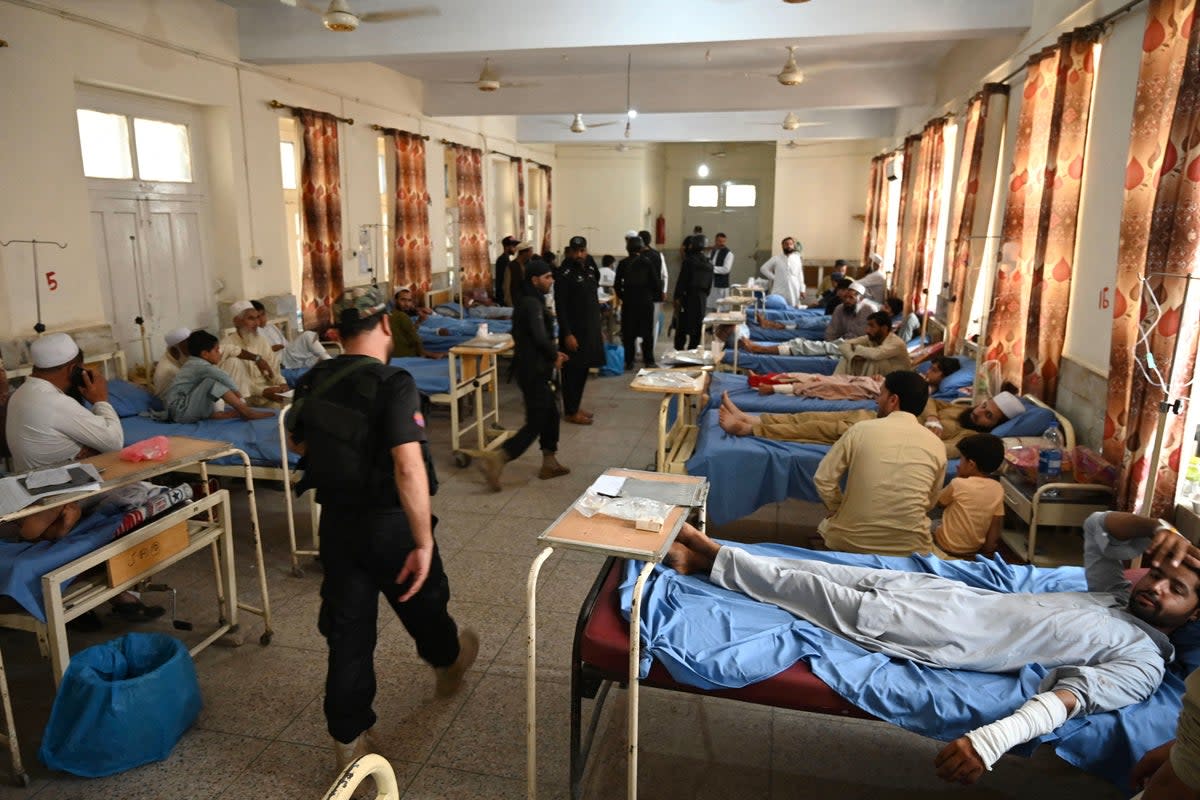Isis claims responsibility for Pakistan political rally bombing as death toll rises to 56
The Isis militant group has claimed responsibility for a suicide bombing at a political rally organised by a key member of Pakistan prime minister Shehbaz Sharif’s coalition, as the death toll rose to 56.
Police in the restive Khyber Pakhtunkhwa province had said earlier that investigations suggested Isis’s regional affiliate – the Islamic State in Khorasan Province – could be behind the attack, which also injured more than 200.
Police said 10kg of explosives were set off by a suicide bomber suspected to be linked to the banned group which operates in Afghanistan and is a rival of the Afghan Taliban.
The blast in the Bajur district near the Afghanistan border ripped through a crowded gathering of Jamiat Ulema Islam, a hardline political party that supports regional Islamists.
The attack comes just two weeks before Mr Sharif’s government is poised to step aside, paving the way for a general election to be held in the coming months.
Isis said in a statement via its Amaq agency that the bombing “comes in the natural context of the ongoing war waged by the Islamic State against ‘democracy’ as a regime hostile to true Islam and in conflict with its divine law”.
Scores of supporters of hard-line Pakistani cleric Fazlur Rehman had gathered in a hall close to a market outside the district capital when a suicide bomber detonated the explosives.
The incident was captured on mobile phone footage recorded by a spectator at the rally, with a video showing the moment of the blast being widely shared on social media.
The blast took place near the stage where senior leaders of the party were sitting, leaving behind a huge cloud of dust and smoke and hundreds of injured.
On Monday, family members of the victims held funerals with moving scenes involving weeping women and children as they bid their final goodbyes to their loved ones.
District police officer Nazir Khan told Geo TV that three suspects have been detained in connection to the bombing.

The provincial police said they gathered details of the suicide bomber while evidence is also being collected from the site.
The suicide bomber was attending the rally disguised as a supporter and was seated in one of front rows.
Mr Sharif condemned the attack and said it was against the democratic process in Pakistan. "The Pakistani nation, law enforcement agencies and our protectors will never allow such cowardly tactics of the enemy to succeed," he tweeted.

Pakistan has witnessed a surge in violence since the Taliban assumed power in Afghanistan in 2021, as various militant factions, including Isis, competed for control of the region. The Tehreek-e-Taliban Pakistan (TTP), also known as Pakistan Taliban, with its ties to the Afghan group, terminated a cease-fire with the Islamabad government in November, citing the administration’s perceived departure from Islamic principles.
But the TTP condemned the bombing and said in a statement that it was aimed to turn Islamists against each other.
Zabiullah Mujahid, a spokesperson for the Afghan Taliban, said on the social media platform X, formerly known as Twitter, that "such crimes cannot be justified in any way”.
The one of the deadliest blasts in the history of Pakistan came hours before Chinese vice premier He Lifeng was set to arrive in Islamabad to mark a milestone celebration of a decade of the China-Pakistan Economic Corridor, or CPEC, a sprawling strategic project under which Beijing has invested billions of dollars in Pakistan.

In February, more than 100 people, mostly police officers, died in a bombing at a mosque inside a high-security compound housing Peshawar police headquarters.
In January, 74 people were killed in a bombing in a mosque in Peshawar.
In 2014, more than 147 people, most of them including schoolchildren, were killed in a Taliban attack on an army-run school in Peshawar.
Additional reporting by agencies
